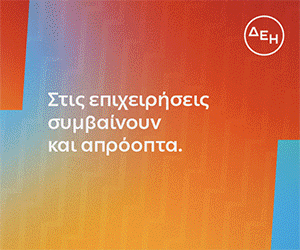
Μ. ΣΧΟΙΝΑΣ
- 27 Apr 2023
- international
"The social partners have a say and a role in the irreversible course of the Balkans towards Europe, because they are not only the representatives of the living economy, but also the vanguards of the effort for the European Balkans", emphasized the vice-president of the European Commission, Margaritis Schinas, during the his speech at the Summit of the Economic and Social Committee (ESC) of South-East Europe, held in Thessaloniki.
Regarding the Western Balkans in particular, he said that in them Europe is emerging as a pole of peace and stability. "We have demonstrated in practice that the EU is a stable, not an opportunistic friend of the peoples of the region," he pointed out and continued: "Peace in the region requires a sustained effort that must always be made with sincerity, reforms, calmness and respect for international law and the international and European acquis.In enlargement, we have already advanced the strengthening of regional cooperation, mainly by strengthening the Common Regional Market.
The EU is the largest foreign investor in the region by far. The start of negotiations with Albania and North Macedonia last July is a very important step, although in my opinion, a rather late step. In North Macedonia, through which I arrived due to the strikes, many of whose citizens I met on the streets of Thessaloniki at the weekend, and these two points say a lot.
- So our friends in Skopje, together with our assistance, should aim for reforms especially in the rule of law and the fight against corruption, start the procedures regarding the Constitution and the agreements with Bulgaria as they have already agreed.
-Albania has made important steps in the part of the European agenda, such as in justice the operation of the so-called SPAK, i.e. the special structure for the fight against corruption and organized crime.
- In Montenegro, unfortunately, the situation is more complicated, especially in matters concerning the operation and effectiveness of the respective Council of State, and I must certainly say that we are particularly concerned about the fortification of the country against malicious influences.
-With Serbia, despite any problems, we are on a stable trajectory, we want to move further on issues that we can agree on and we want the Member States with us in this. I met with President Vucic last fall and saw for myself the ambitious plans for more Europe. Yesterday's agreement in Ohrid with Kosovo is a huge step in the right direction.
- In Bosnia and Herzegovina, which has officially been an accession country since December, we expect the rapid creation of new institutions targeting the 14 priorities we have already announced and are the only way to enter into negotiations for the country's accession.
-For Kosovo/Kosovo, visa liberalization is an overdue goal, but the main issue it should be concerned with is certainly the implementation of the February 27 agreement in the Belgrade-Pristina dialogue. We are in full agreement with the Swedish Presidency to discuss with the Member States the issue of the candidacy that was submitted in December, and of course it is a condition that requires the composition of the Member States so that we can give an opinion on it if requested.
Mr. Schinas said that a few months ago he visited, as did the Migration Commissioner, with the aim of closer cooperation in management and noted: "We have taken important steps in this direction, we should have the same approach with returns, the Frontex and on their own borders and we have very important resources for this purpose. All this will be more convincing, it will be easier, it will be more distinct when Romania and Bulgaria finally join the Schengen area which in my opinion will it should already have happened. We are on the right European path."
He referred to the unforeseen and unprecedented crises that the new European Commission had to face and emphasized that "hard work was the only way forward for a more resilient, more distinct and more cohesive Europe, which leaves no one behind, which is the brightest example of society in the world, and Europe proved it in practice".
Regarding the war in Ukraine, he said that since its beginning, the E.U. allocated 67 billion euros for Ukraine and also for the Ukrainians who were displaced.
More than 4 million Ukrainians are hosted in Europe today. The direct protection regime that has already been extended is the main mechanism that gives access to our schools, hospitals, workplaces, while initiatives have been taken to reconstruct and reorganize the country.





